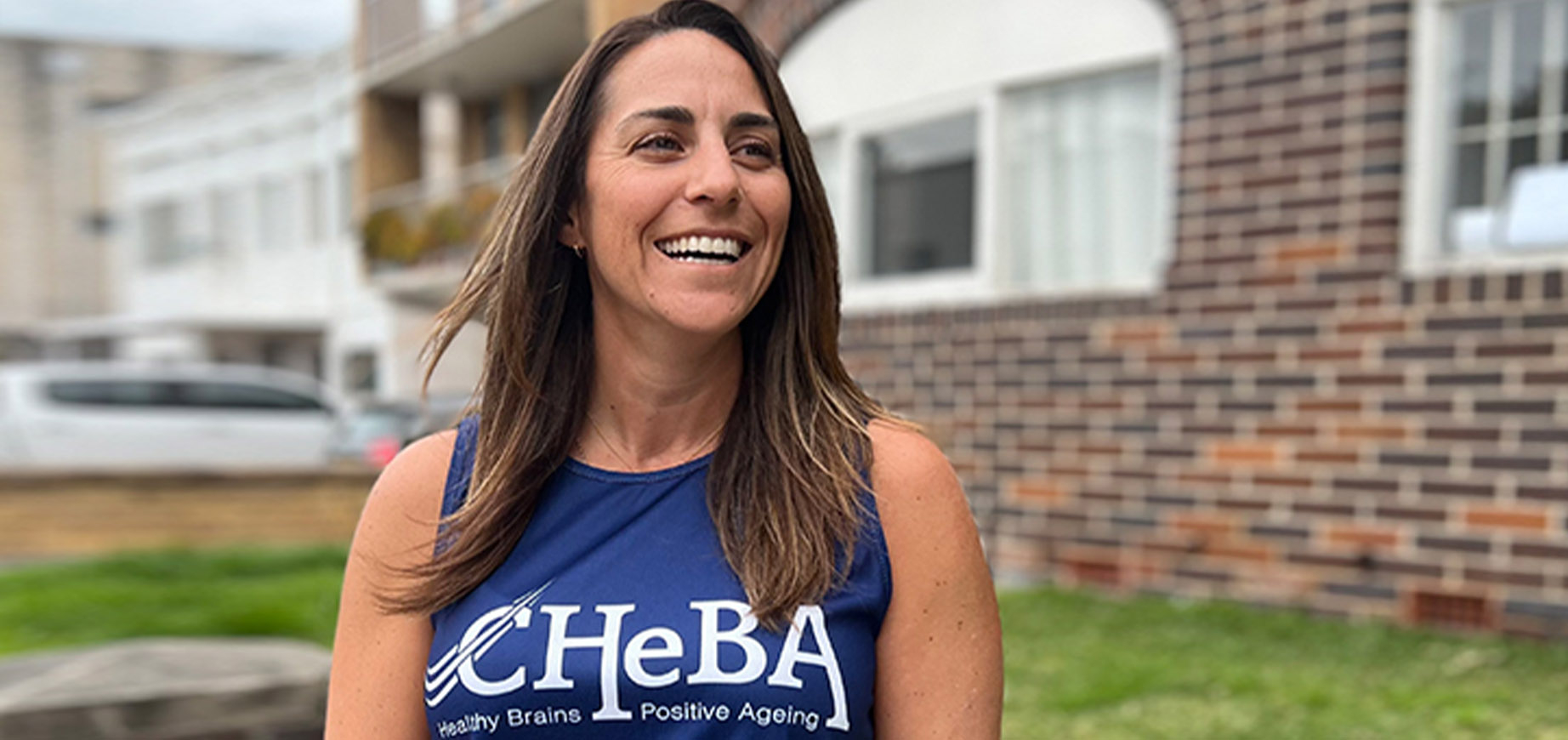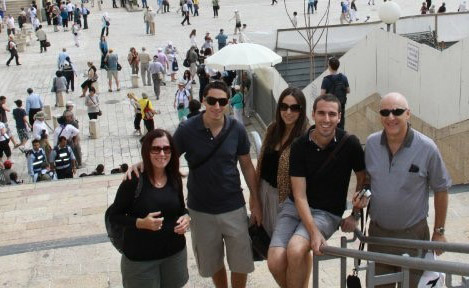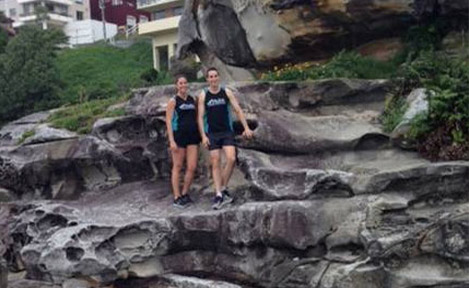05 Sep 2022

HEIDI DOUGLASS | h.douglass@unsw.edu.au
Keri Kitay, Ambassador for CHeBA’s Change Makers initiative, is leading a family team in the Blackmores Sydney Running Festival comprised of her brothers, dad, sister-in-law Anne and nephews, in honour of Keri’s mum who was diagnosed with young-onset Alzheimer’s disease at the age of 45. Keri is running to keep her Mum’s memory alive and honour her for the incredible person that she was.
Which event are you participating in?
Across the family we are participating in the 10km bridge run and 3.5km fun run.
Who is in the team?
Myself, my two brothers Greg and Ricky, my dad Martin, sister-in-law Lee-Anne and three nephews – Aaron, Dov and Jacob.
Why are you running/walking for dementia research at CHeBA?

My mum was diagnosed with young early onset Alzheimer’s disease at the age of 45 and for 10 years I watched the disease chip away at her. In the beginning she began forgetting small things which developed into her becoming withdrawn and depressed, and finally led to her being completely unable to recognise her family. She also became unable to walk, dress herself, take care of herself and at the very end, gasping for air.
Throughout this time, I was fortunate that my mum could be cared for by the very best and have her family close by all the time. As someone who has always been into sport and health, this experience really opened my eyes to the meaning of ‘having your health’ and the importance of being proactive when it comes to health and fitness. While there is no cure for Alzheimer’s, the brain is a remarkable organ that controls everything and while it is not a muscle, I am a strong advocate for recognising that it is extremely important to exercise both your brain and your body and fuel both with nutritious food.
I am running in the Blackmores Sydney Running Festival to raise awareness of the devastating impact that Alzheimer’s has on the individual, their family and the community, while at the same time campaigning to raise money for the Centre for Healthy Brain Ageing (CHeBA) so that they can continue doing the incredible work and research into brain ageing for ways in ways to prevent cognitive decline, improve cognitive functioning as we age, devise better care for people with dementia and to diagnose people at risk for dementia.
I am a proud Ambassador for the CHeBA Change Makers – Next Gen Philanthropy initiative which encourages the next generation of Australians aged 18-40 to make a difference, by combining regular giving donations to amount to larger, more impactful research contributions.
Why is it important to you to share your story?
My hope is that there will be a cure in the near future, but until then, I hope that my story and experience can shed light on what it is like for someone to live with Alzheimer’s and how this deeply affects their family and community.
I am running to keep my mum’s memory alive and honour her for the incredible, kind and caring person that she was, and ensure that we continue to stress the importance of this research
The Blackmores Sydney Running Festival is just a few weeks before the third anniversary of my mums passing. In 2013, my family and I ran our first running fundraiser to raise money for CheBA and it is an honour to be able to do the same almost 10 years on.
Why is it important to you to support research?
It’s simple. Without research, there is no hope of a cure. 487,500 Australians are living with dementia and without a medical breakthrough, the number of people is expected to reach 1.1m by 2058. Globally, someone is diagnosed with dementia every 3 seconds. I witnessed first-hand the journey of Alzheimer’s and you feel completely helpless. I watched my mum’s quality of life completely diminish and, in a sense, be robbed of all of life’s joys and pleasures at a time when her first grandchild was born and when she should have been relishing so many family moments.
I want to support the advancement of research towards medical breakthroughs because currently, there is simply nothing you can do.
Aside from a cure, if we could increase our understanding and discover more about the brain, ageing, prevention of cognitive decline and how to delay the onset of dementia, it would extend all our chances of living a long and healthy life.
The more research we can access, the greater we can prepare and devise a system that caters for people living with dementia, and their carers.
What outcome do you hope to see with CHeBA’s research?
Ultimately, my hope is to see a cure for dementia.
However, there is so much more that we as individuals can do, and so my hope for research is that it unlocks everything about the brain and the pathways that lead to cognitive decline and premature brain ageing, so a blueprint to healthy brain ageing can be developed that we can all live by. In conjunction with that, quality education programs that cover modifiable risk factors for dementia and the importance of healthy brain ageing. I believe that with more research and education about dementia, people will start to understand the severity of the disease and take the initiative to implement healthy habits and become as accountable as possible for their own health. For those living with dementia and those predisposed, a better understanding of the disease and what can help delay the onset or create better day-to-day living would make a tremendous difference.

Working as an Ambassador for CHeBA over many years has given me an incredible insight into the research that is being done into brain ageing, and the initiatives available to support the raising of funds for critical research, to bring dementia to the forefront of the minds of people who may not have had any experience with the condition. The support and partnerships of an incredible number of corporate organisations and individuals for CHeBA has been so reassuring, and witnessing dementia become a top priority for Australia and gaining the recognition for funding that it really requires has been very satisfying.
What I now know is that no one is immune. You don’t have to have a family history of dementia for it to affect you. In my experience, it can affect anyone, and so as individuals, it’s more important than ever to take your health seriously and think about the future and longevity. Part of that includes support research for the next generation. Once you have witnessed a part of someone you love being taken away from them over and over, you become acutely aware of how devastating the disease is and your only wish for yourself is that you never have to personally experience it.

Find out more about the Change Makers – Next Gen Philanthropy initiative
